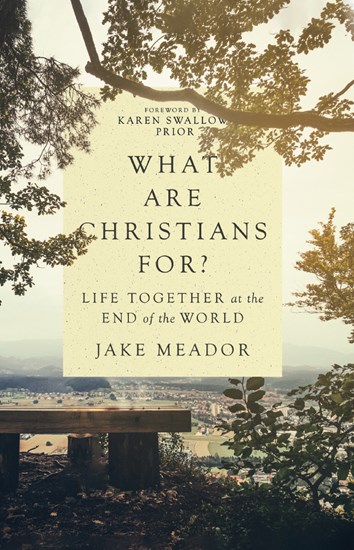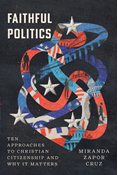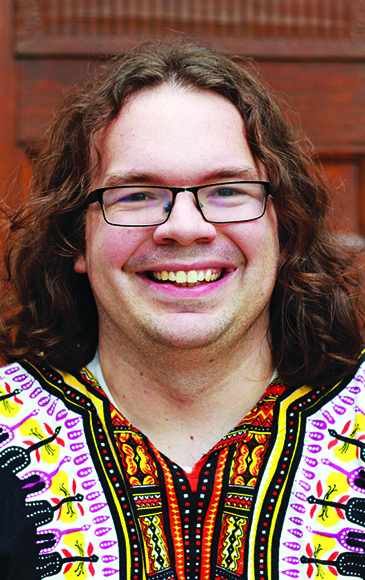
-
ebook
What does a Christian political witness look like in our day?
Politics ought to be defined by fidelity to the common good of all the members of society. But our modern Western politics are defined by a determination to bend the natural world and human life to its own political and economic ends. This wholesale rejection of the natural order is behind the dominant revolutions in our history, and defines our experience in Western society today—our racialized hierarchy, modern industry, and the sexual revolution.
In What Are Christians For?, Jake Meador lays out a proposal for a Christian politics rooted in the givenness and goodness of the created world. He is uninterested in the cultural wars that have so often characterized American Christianity. Instead, he casts a vision for an ordered society that rejects the late modern revolution at every turn and is rooted in the natural law tradition and the great Protestant confessions. Here is a political approach that is antiracist, anticapitalist, and profoundly pro-life. A truly Christian political witness, Meador argues, must attend closely to the natural world and renounce the metallic fantasies that have poisoned common life in America life for too long.
"Jake Meador continues to give us an accessible but deeply informed account of what he calls 'Christian social doctrine.' He begins by contrasting late modernity's view of nature—as a place of chaotic power conflicts—with that of the magisterial Protestant Reformation—as a work of God's love. On the basis of this 'thick' conception of the natural order, he then insightfully shows how it provides an alternative, life-giving way to understand race, sex, technology, the family, the environment, politics, and institutions. Our polarized and fragmenting contemporary church needs this book!"
"Jake Meador reminds us that the purpose of the Christian life never changes according to time, place, or station, even if we of particular places and perspectives have difficulty seeing and applying such a complete vision in whole. . . . Simple and superficial, this book is not. In fact, there is so much wisdom, so much wholeness in these pages, that to read them is to be left wondering how we have gotten so far astray. Indeed, this book fills me with yearning. It sounds a bell that calls all within earshot to come back home and gather around the table for a filling feast that is ours to enjoy forever."
"A book that pairs a trenchant critique of whiteness guided by Willie Jennings with a robust Reformed orthodoxy guided by Herman Bavinck is precisely the book that I've been looking for. Meador's work is a text of truth, goodness, and beauty revealing to us the world in which we live and the way we ought to move about in it."
"Like a good physician, Meador offers penetrating yet accessible diagnoses and remedies for our contemporary milieu. Identifying the breakdown of our perception of the natural order in relation to ourselves, creation, and our neighbor, Meador draws from the broad Christian tradition (and heavy doses of Herman Bavinck) to offer concrete responses. This book thus challenges us, because Christian discipleship involves radical self-giving and obedience, but it is also an invitation for, as Meador reminds us, we are never more natural than when we love."
"A voice in the wilderness of current culture wars, Meador has written a provocative and unsettling Christian critique of modernity. Deftly incorporating an arresting selection of voices, many far too lightly dismissed by Christians as their ideological antagonists, Meador presents an inspiring, bracing, and rigorously orthodox vision of Christian life, thought, and community as a hopeful response to its challenges and possibilities."
"Meador's book is a call for a more rooted world in which Christians pursue justice, mercy, and holiness in a sphere that will not be tamed or controlled. Touching on race, gender, economics, ecology, and more, it is a vision that is both comprehensive and full, yet modest and grounded. In these pages, there is much to provoke and to challenge, as Meador offers a vision of the Christian's participation in the world, which is as small as the household and as sweeping as the cosmos."
CONTENTS
Foreword by Karen Swallow Prior
Introduction: Whole Life Politics at the End of the World
1. An Immense Inheritance: A Christian Account of Nature
2. The Great Uprooting: Race and the End of Nature
3. The Unmaking of Places: The Fruit of Industrialism
4. The Unmaking of the Body: Considering the Sexual Revolution
5. The Unmaking of the Real: Wonder Among the Institutions
6. Against the Revolution: The Beginnings of Christian Social Doctrine
7. The Earth Is Our Mother: On Christianity, Land, and Animals
8. A Vision of Christian Belonging: The Household and the Sexual Revolution
9. The World in Cracked Icons: Wonder, Death, and the End of All Things
10. Politics Beyond Accomplishment: Toward a Politics of Care
Acknowledgments
Notes













